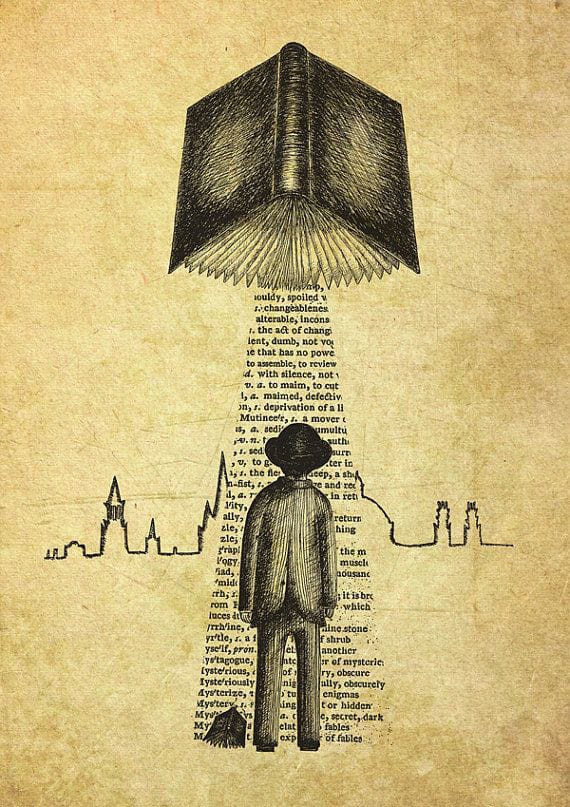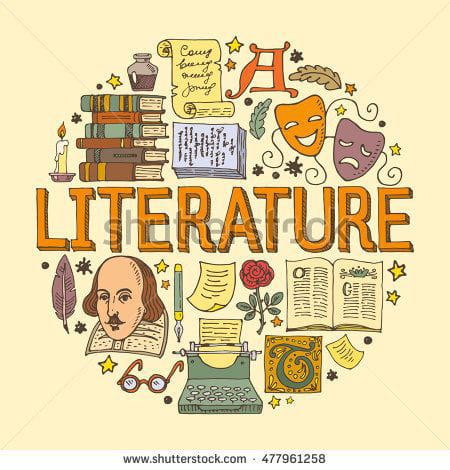
What is literature?
Written or spoken words used to express ideas, emotions, and experiences are known as literature. It explores and gives us a brief idea about themes, narratives, characters to convey our message and evoke emotional responses in the audience, making it a vital form of intellectual and artistic expression.
Literature is an art. We can learn more about literature by reading books or listening to audio books, scripts, manuscripts, poetry novels and many more in written type of literature. We can also watch dramas, movies and series to know more about art and its diversity. Plays, skits and acts are the form of literature, which are growing and encouraging artists day by day. It is the oldest form of literature, which we can visualise more in cinemas nowadays.
Literature includes genres like fiction, non-fiction, poetry, drama, and many more.
Genres: Genres are one of the widest range of categories in literature. It classifies literary works based on their content, form, style, and ideas.
There are many types of genres. Some are as follows:
Types of genres:
- Fiction:
Fiction contains an imaginary plot or play. This depends totally on imagination. We can plot characters according to our imagination. Then the story is being scripted. It contains complex characters in stories, which focuses on a single plot or theme. Teens and youths are attracted to this kind of genre.
- Non-fiction:
Non-fiction genres contain genuine contents. It depends on a realistic story, which is based on true incidents. Such stories are either inspired or are being extracted from novels or books. Biography and autobiography are such.
Biography is written on account of someone’s life by another person.
Whereas, Autobiography is written on a person’s life by the person themselves.
- Poetry:
Poetry is like music. Some are free verses. And, some contain rhythms in them. People love listening to it. Some poetry is basically about good or bad deeds. Some poems have long narrative stanzas telling tales about heroes and their deeds. People enjoy listening to rhythms and syllables in it. Poetry is a heart of genre. People of every age group, from kids to older ones listen to poetry, which is very melodious to one’s ears.
- Drama:
Drama contains plays, skits, acts, action, and cinematic representation of stories. There are many types of dramas. Family drama, tragedy and comedy are one of them. Tragedy is one of the finest dramas which people take interest in. Tragedy often leads to terrific events and an unhappy ending. Family drama contains, plays related to daily household, yet another drama people find intrigued in. Whereas, comedy is totally different. It leads to a happy ending and has a humorous tone throughout the play.
- Horror:
Horror is one of the interesting genres youths are interested in. Though people get scared throughout the play, it doesn’t make them watch it any less. Ghosts, witches, magicians, and demons are the characters included in it.
- Fantasy:
Fantasy is one of the finest of genres, when we talk about fiction movies, films or series. It has its own way to get in people’s hearts. It involves magical elements, supernatural creatures, parallel universes, and imaginary worlds. It not only explores scientific advancements but also futuristic concepts and technology.
- Mystery:
It contains stories with an idea of crime or crime documentaries. They are suspicious as well as mysterious. The plot gets interesting when both the genre mystery and horror gets involved in such stories. The stories which include plot like a puzzle or suspenseful elements are known as mystery. This is loved by every age group and generation.
What is Linguistics?
Linguistics are diverse fields with various branches that study different types of languages. These branches are based on their structural and dramatic features.
Some branches are given below:
- Typology:
Typology is a term used to describe the classification or study of type by pattern based on shared characteristics or traits. It is commonly used in various fields. It helps linguists understand similarities and differences between languages globally.
- Psychology:
Psychology or psycholinguistics to be precise ,studies and develops the discipline in one’s mind. It helps humans to master, investigate, learn and enhance languages. It helps people comprehend and use languages, by conducting research on speech development and language development.
- Anthropology:
Anthropology acknowledges and develops the relationship between language and culture. It examines different cultures and different languages and develops the relationship between different people across the globe. It explores how language reflects and shapes cultures, society and identities.
- Semantics:
Semantics deals with words and sentences. It often explores complex, compositional and lexical semantics. It includes complex words and complex sentences.
- Computational linguistics:
Computational linguistics is yet another type in linguistics which is more enhanced and advanced than any of the other linguistics. It includes computer language and algorithms. It deals with symbols and models to analyze and generate human language.
- Historical linguistics:
Historical linguistics traces the history of languages and it’s types. It studies the history of language briefly over the period of time. Right from the evolution and development of it. It also develops and practices the advancements of languages over the period of time.



